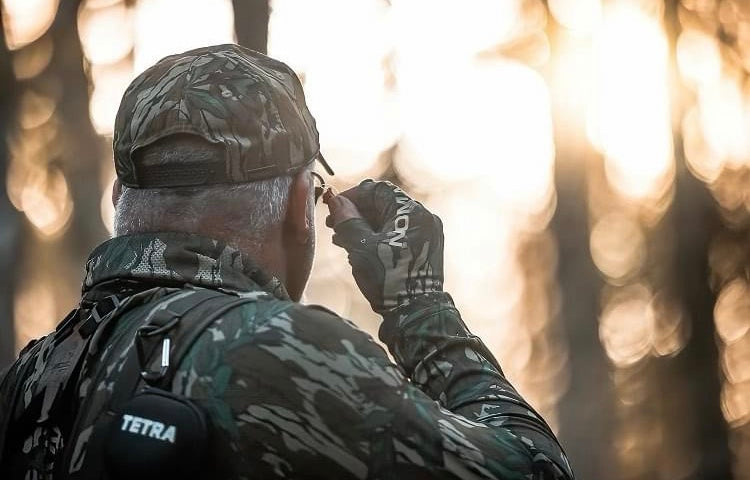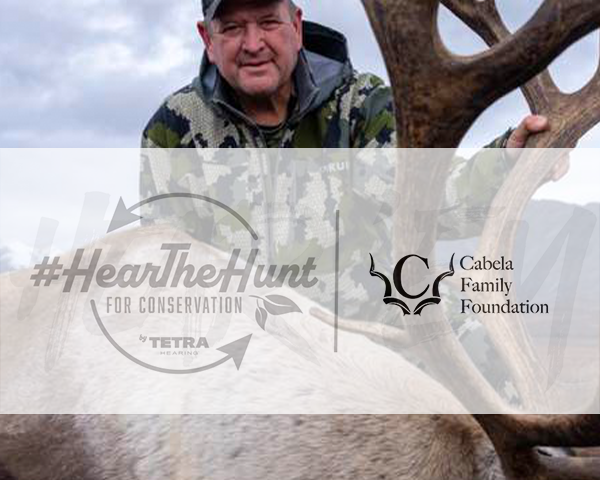Hearing Loss in Hunters | The Aging Hunter Demographic

Looking at Hearing Loss in Hunters
There’s a lot of promising news these days with hunter recruitment, in terms of getting younger generations out, more women hunters, and more urban demographics exposed to the outdoors. But one of the biggest typical segments of the hunting industry isn’t getting any younger. In fact, the Baby Boomers are either approaching or already in retirement. When this generation began hunting, things were pretty different in the world, and it was downright rare to see hearing protection for hunters. And after a lifetime of hunting, working, and everyday life – with little to no hearing protection – it’s not hard to believe that there could be some hearing loss in hunters from the Baby Boomer generation. In that respect, there’s a fair amount of overlap with early members of Generation X (the cohort following the Baby Boomers), as well. So while it’s great that aging hunters are still getting outdoors and doing what they love, they might be missing important parts of the experience (e.g., hearing a buck grunt, telling which direction a turkey gobble came from, etc.). Here’s a quick look at hearing loss in hunters, and what can be done to help prevent it.
The Problem with Hearing Loss in Hunters
As mentioned, older generations likely grew up shooting firearms and doing other loud activities without protecting their ears and hearing. It just wasn’t very common to see hunters doing that – in fact, you might have taken some serious ribbing for wearing it. Whether it’s the single loud bursts of a firearm or the prolonged humming of a motor or other machinery, loud noises can actually do permanent damage to your ears. Unfortunately, once it has been damaged, it’s irreversible. As you get older, most people probably expect that some things are going to start malfunctioning and your body just won’t be as good as it used to be. While there is some truth in that, it doesn’t mean you can’t be proactive in protecting your hearing. In fact, when it comes to hearing loss in hunters, that should mean you want to be as protective as you can be at all times, regardless of your age. Because if you can preserve what hearing you have left, it will mean more enjoyable trips afield and it could even help balance out the eventual loss you could experience with old age.

The problem that many older hunters have likely faced is that hearing protection hasn’t always been conducive to hunting activities. Sure, it makes sense to protect your ears with typical methods if you’re going to shoot dozens of rounds at clay pigeons at a shooting range with other hunters all doing the same thing. But how successful do you expect to be out hunting if you block your ears with foam earplugs and wear earmuffs over the top of them? Think you’ll still hear that flushing rooster in time to swing on it or be able to pinpoint where a turkey sounded off from? Doubtful.
Options for Hearing Protection
For the reasons mentioned above, foam earplugs and earmuffs can protect your ears from the loud noise of firearms, but they’re not great choices for hunting scenarios. In other words, the vast majority of hunters haven’t worn hearing protection because it hasn’t been practical for them. That is a big reason for the hearing loss in hunters today. And that’s why TETRA Hearing was founded. We wanted to make it easy and comfortable to wear hearing protection while hunting, prevent loud noises from hurting your ears, and even improve your hearing for certain noise frequencies while wearing them. Our Specialized Target Optimization (STO) technology helps hunters not only hear noises around them, but pinpoint direction and distance as well – all while protecting your ears from sudden loud noises like a firearm.
Hearing Protection
Hearing loss in waterfowl hunters can be especially devastating, due to the loud calling and sudden blasts of several rounds at close range. Likewise, skeet shooting without ear protection is just asking for permanent hearing damage. In these situations, it is more important to protect your ears from the loud and consistent gunshots or game calling, but it would be great to still hear others around you at the same time. Our Shield Series devices help do just that. From waterfowl blinds to points on a bird dog to the shooting range, you can be sure our products will protect your ears while allowing you to hear normal noises around you.
Hearing Enhancement
For certain kinds of hunting, it’s almost necessary to hear things around you. With our AMP Series of TETRA hearing products, you can isolate and enhance the frequencies used by specific game animals, using custom programs we have available. Want to hear that distant turkey gobbling? Our Turkey AmpPods will actually enhance the sound from the frequencies that turkeys make. Would you like to hear an elk bugling across a ridge? Our Elk AmpPods isolate and enhance the frequency in a typical elk bugle so you can hear it better and pinpoint its location. In other words, these aren’t just hearing protection, they are hearing enhancement.

Different Designs and Options
TETRA Hearing products come in a couple of different designs to fit various preferences. Our AlphaShield series are standard universal designs with adjustable tips to fit almost any ear. For a truly custom fit, you can order our CustomShield devices, which are molded to fit your own ear canal like a glove. This option provides you with the best hearing protection because it completely blocks the ear canal from other external noises. Importantly, if the price of a hearing device has kept you out of this market previously, you have some options. For those who have a Health Savings Account (HSA) and have enough funds put away in it, you can use your HSA to pay for TETRA hearing devices. This is a great way to use tax-free money to avoid hearing loss in hunters now and in the future.
Long story short, older hunters have spent decades doing some of the things they enjoy most in life: sitting in the woods and experiencing nature. But with hearing loss in hunters, we start to lose some of the things that make those experiences so enjoyable (e.g., hearing an owl hooting, listening to the wind through the aspen trees, etc.). It’s not too late to prevent further hearing damage, regardless of how many hunting seasons you have under your belt.
- Tags: best hearing protection hearing enhancement hearing loss in waterfowl hunters hearing protection hearing protection for hunters permanent hearing damage protect your ears skeet shooting without ear protection TETRA hearing products wear hearing protection while hunting You Heard It First
0 comments


